How do you talk to kids about the riots? We spoke to a psychologist and a teacher
Finding the right words to speak about these events is hard for parents
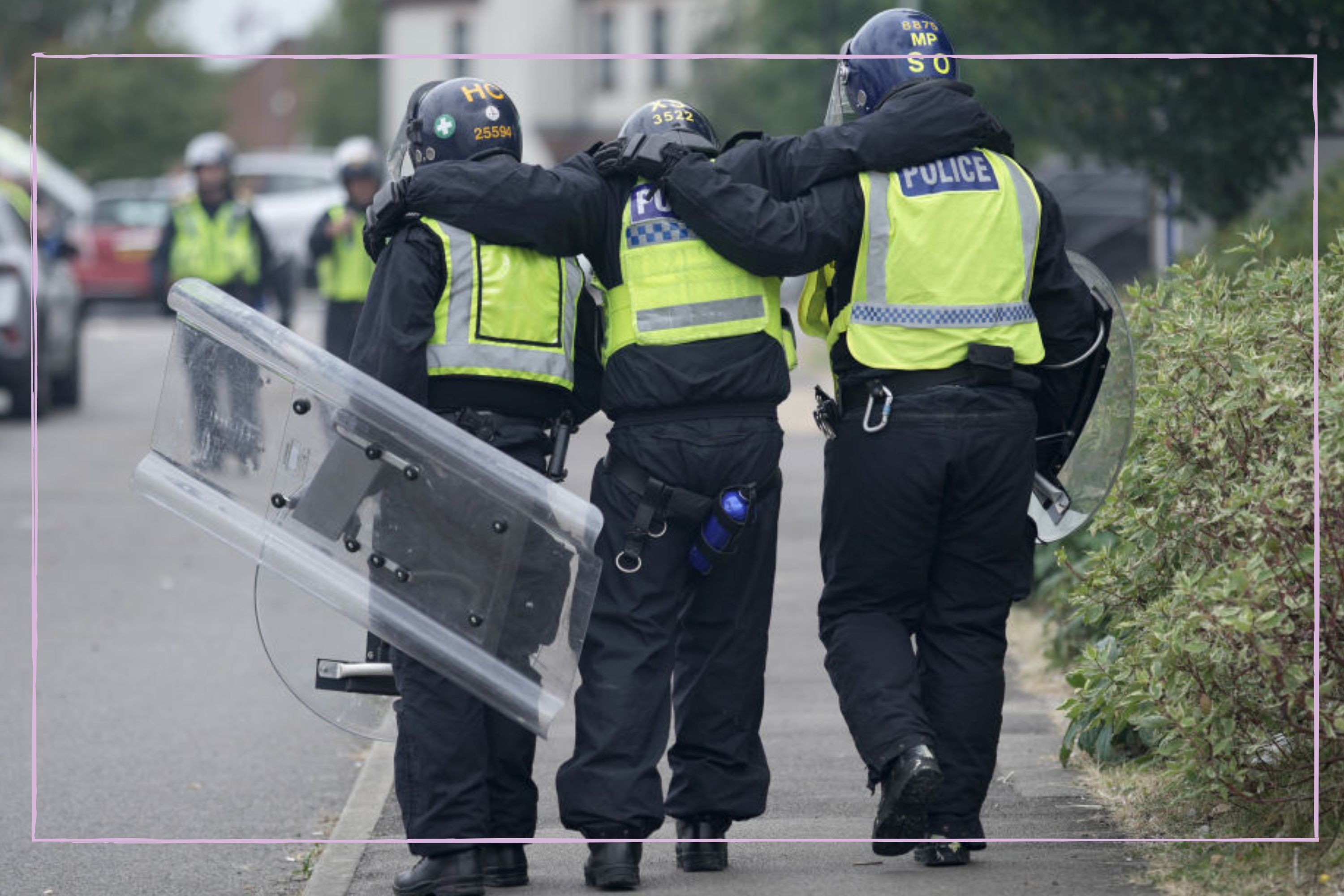

If you're wondering how to talk to your children about the riots or if they have questions about what's happening, a psychologist and a teacher advise on how to find the right words.
How to talk to kids about challenging and emotive events is tricky, and never has it been more important to talk to your child about feelings than in light of current news events. Children will likely have heard about the riots taking place in the UK, either from seeing pictures and videos online or hearing others talk about them. Your child might be asking you direct questions, or you might wonder how much they know if they've not mentioned these events at all.
When talking to kids about tragic news stories you don't need to have all the answers, and it's normal to worry about how much to share with them. This is why we spoke to Educational Psychologist Dr Patricia Britto and a primary school teacher based in Leeds, about finding the right words to have conversations with your children about the riots in an age appropriate way.
How to talk to kids about the riots from an Educational Psychologist
Even if your child is yet to mention that they know anything about the riots and violence, Dr Britto suggests parents raise the subject of what's happening anyway, to ascertain what they know - they could've heard misinformation from other sources. She tells us "Adults need to be prepared - children and young people might get information from their friends, social media and others about a particular incident; therefore, it is ideal to check what they already know and clarify any misconceptions by asking them directly what they've heard."
Once you find out what they know, Dr Britto suggests thinking with your child together, to gently explore their worries. The Educational Psychologist believes trying to protect them is not the always the right course of action, telling us "Please don't fall into the trap of trying to protect children so that you avoid talking about the event. Children and young people will likely benefit from talking about what's happened as they seek reassurance, comfort and adult support."
"Please don't fall into the trap of trying to protect children so that you avoid talking about the event. Children and young people will likely benefit from talking about what's happened as they seek reassurance, comfort and adult support."
Dr Patricia Britto
Although it is completely understandable to want to protect your child from bad news and tragic events, you can still offer a truthful and age-appropriate explanation. You know your child and the level of information they can handle.
Dr Britto shares ideas on how to start conveying what's happened with the riots and why they're happening, saying "Children and young people need a truthful explanation that makes sense of the main facts after an incident, which is age-appropriate. Even younger children can benefit from being given a description and explanation of what happened using drawings, age-appropriate books and role play."
GoodtoKnow Newsletter
Parenting advice, hot topics, best buys and family finance tips delivered straight to your inbox.
What to do if someone has died
As we know, the riots came in the aftermath of the murders of seven-year-old Elsie Dot Stancombe, nine-year-old Alice Dasilva Aguiar and six-year-old Bebe King. "If someone has died, explain what that means by using visual illustration and storytelling of the scenario in a calm and nurturing way," says Dr Britto, adding "Often, children and young people can take time to accept the reality of death, mainly if it happened in a traumatic way, and adults will need to give them additional processing time."
She continues "Younger children are likely to need the use of simple language to help them understand that death is permanent and offer lots of emotional support while they process their feelings. It is to be expected for children and young people to be upset for weeks after a shocking personal, local or national incident; however, if negative feelings continue after some time, please seek further support from the relevant health, social care and educational agencies."
Dr Britto also shares some common behaviours to look out for in children feeling worried about challenging events in the news - these are useful for worried parents to know about and react to if they need to. She reiterates that these reactions are common, telling us "It is important to validate any feelings children and young people may have about a challenging event. Children and young people are likely to feel safe when they feel validated, seen and heard, and told that their reactions are understandable and not penalised."
Your child might experience:
- Nightmares
- Easily irritable
- Sleep difficulties
- Being hypervigilant
- Seeking lots of adult attention
- Feeling distressed and unable to focus
- Memories or pictures of scenes from the news
- Feeling as if the situation is directly happening again
- Avoidance and not wanting to think or talk about the event
- Engage in role-play or draw about the event time and time again
- Physical response to stress and complaints such as stomach aches or headaches
How to talk to kids about the riots from a teacher
A primary school teacher from Leeds, who wishes to remain anonymous, offers her advice. She tells us "Unpick it at their level for them - listen and create a psychologically safe space for them to say what they need to say. Support this by asking questions to find out what they know - when you do this, children will learn to trust you and will come to you because they know you are not going to judge - you’re there to listen and support them if they need it. You can ask them ‘do you need help to understand this? I want to help you’."
She adds "It’s always you and your child against the problem. I have a climate in the classroom where a child can come to me and they know that I will listen and will make time to unpick it with them every time - it’s very easy to not have the time. But by doing it we’re giving them tools to do it when we’re not there for them."
"It’s always you and your child against the problem. I have a climate in the classroom where a child can come to you and they know that you will listen and you will make time to unpick it with them every time - it’s very easy to not have the time."
Anonymous teacher
Just as they would at your child's school, teachers advise parents to create a non-biased, non-judgmental approach to answers they give their children about the riots. How a teacher tackles these difficult conversations can be recreated at home. The teacher we spoke to suggests: "In the class room I would welcome any questions, and I make it a point to watch Newsround which usually starts a discussion at a child’s level.
But my first approach as a teacher is to double down on them feeling safe. We talk about who makes them feel safe in their life and where they can go if they hear or see anything they’re unsure of. Make sure they know how they can keep themselves safe, what happens if they don’t feel safe, and who can they speak to. It's finding the way to help them understand some people do awful things, and this is an awful thing."
Questions your children might ask:
There could be phrases and terms your children hear for the first time, and it could be helpful to have an explanation ready for them if they ask.
- What’s a fascist?
- What’s a riot?
- What's the EDL?
- What does pro-British mean?
- What's an immigrant?
- What does ‘Thuggery’ mean?
- What does far right mean?
What parents have been doing
Mum-of-two, Ally, admits to struggling with talking to her children about the riots. She says "I started by asking my children what they'd heard to gauge what they knew about what sparked the riots. From there, I could fill in the gaps and encourage them to ask any questions they had - and be totally honest if I didn't know the answer. I wanted to be as truthful as possible about what's happened, because I always want them to think they can come to me and ask anything without worrying I won't tell them the truth."
Mum-of-three, Gemma, has children of different ages and found this really hard when talking about the situation. She tells us "I knew my 13-year-old would know what had happened, and I wasn't sure what my 10-year-old had picked up. But I definitely wanted to shield my seven-year-old from it altogether, as she loves her ballet lessons and I didn't want her frightened to go to them.
But asking the older two not to mention it and switching off the news all the time got exhausting. In the end, my husband spoke to the older boys and it turns out they knew quite a lot. So we really pushed home the messages with them that we need peace and understanding in society, and violence, destroying property and hurting police will never solve anything. I told my daughter the basics but left out what I thought would be frightening for her. I plan to revisit it and let her ask more questions if she wants to, but it's been hard."
To read more, we share how to talk to your child about war, and how to talk to your kid about feelings. We also look at active listening and how it can be helpful during difficult conversations.
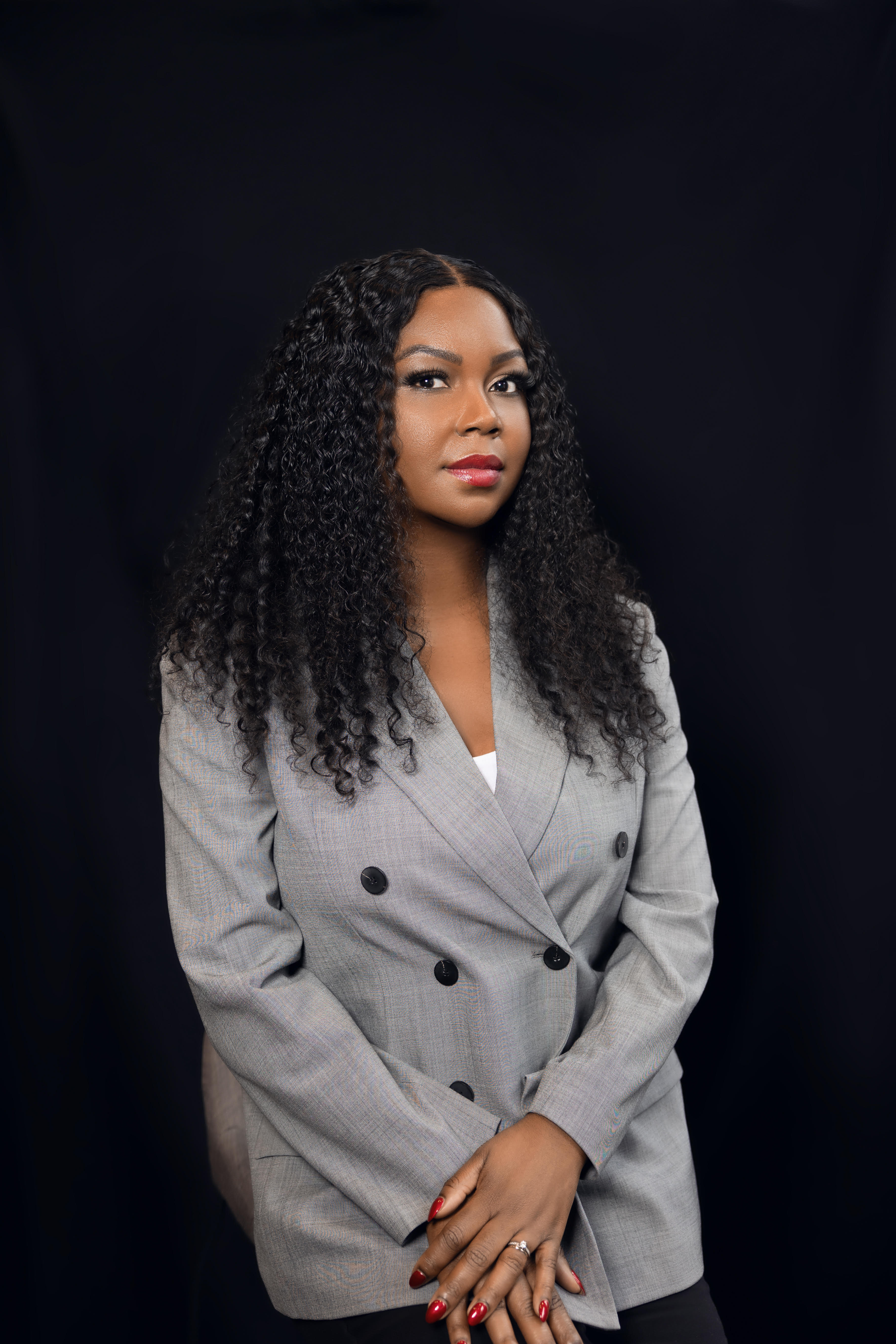
Dr Britto's qualifications include a Doctorate in Professional Educational, Child and Adolescent Psychology, an MSc in Mental Health in Learning Disabilities and a BSc in Psychology. Dr Patricia founded Mode Educational Psychology Service, and her practice is located on Harley Street. Dr Patricia offers families, communities, and educational settings support through consultation, individual psychological assessments suitable for children and young people aged 0-25.

Lucy is a mum-of-two, multi-award nominated writer and blogger with six years’ of experience writing about parenting, family life, and TV. Lucy has contributed content to PopSugar and moms.com. In the last three years, she has transformed her passion for streaming countless hours of television into specialising in entertainment writing. There is now nothing she loves more than watching the best shows on television and sharing why you - and your kids - should watch them.
-
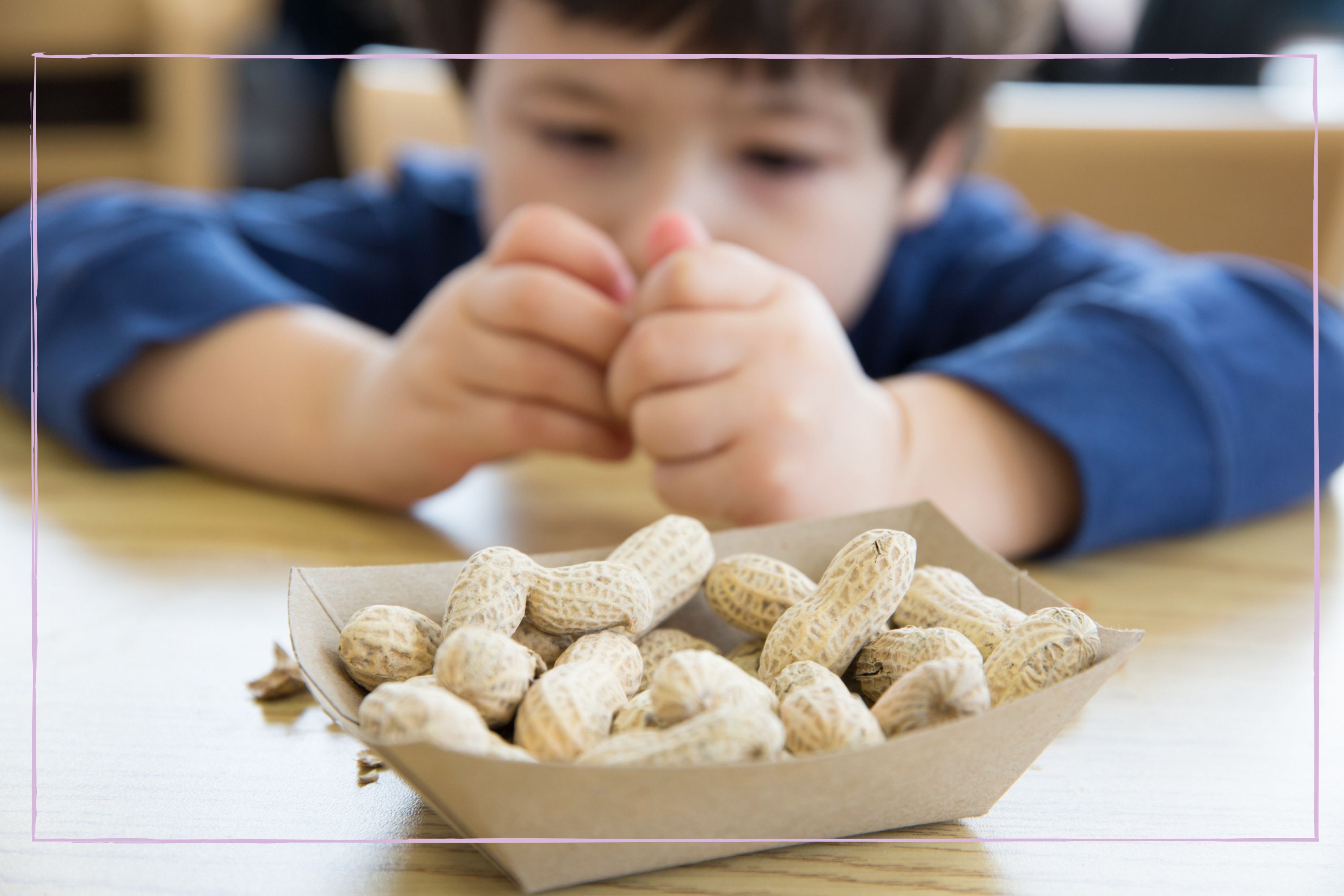 12 things parents of allergy children really want everyone to know
12 things parents of allergy children really want everyone to knowWe spoke to some parents who have children with allergies - they want everyone to know just how serious and debilitating it can be when your child suffers allergic reactions to food.
By Lucy Wigley Published
-
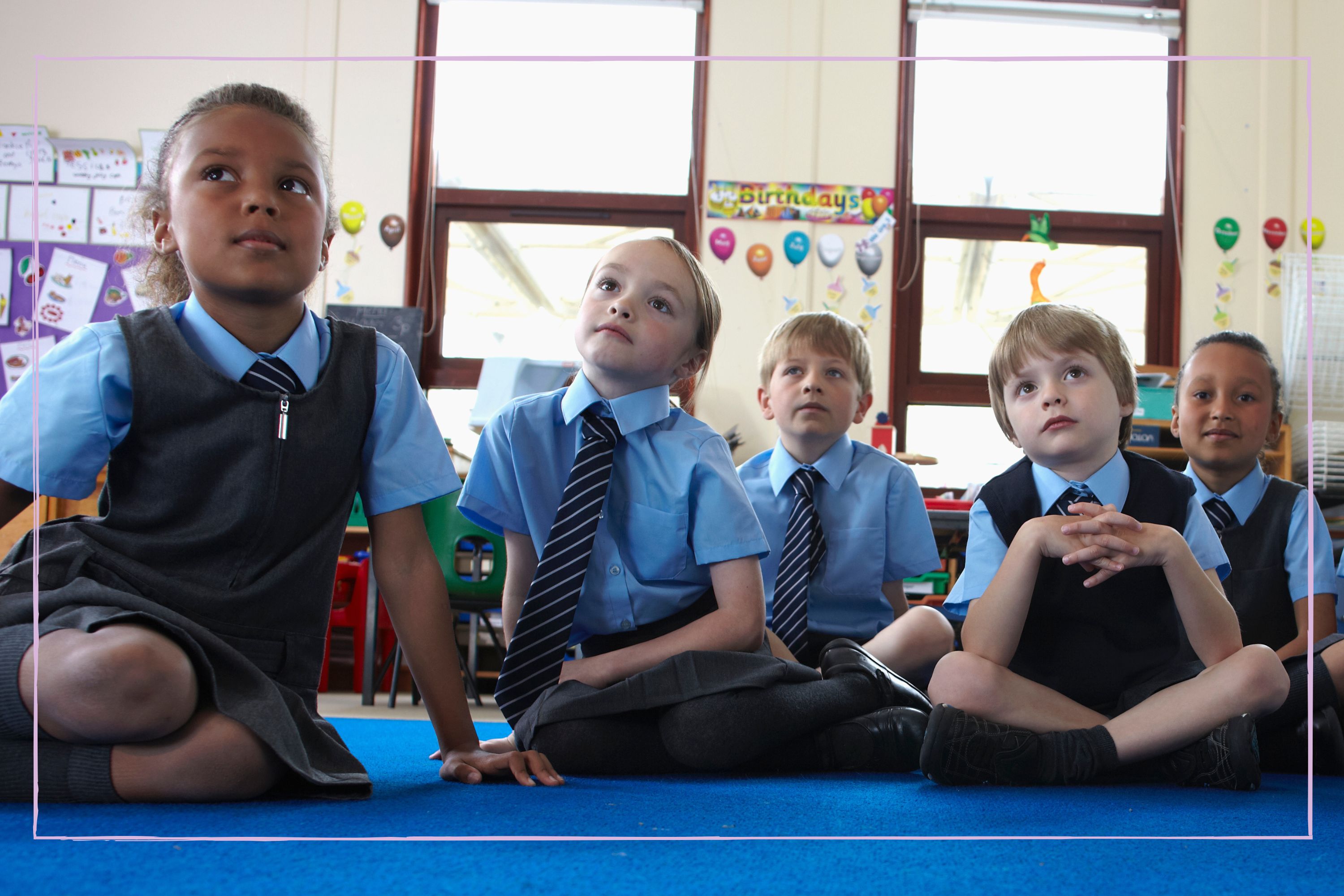 Want to feel old? Watch hilarious video of kids baffled by the school tech their parents used
Want to feel old? Watch hilarious video of kids baffled by the school tech their parents usedMost schoolchildren have no idea what the common classroom tech from just a generation ago was used for, let alone how to use it
By Charlie Elizabeth Culverhouse Published
-
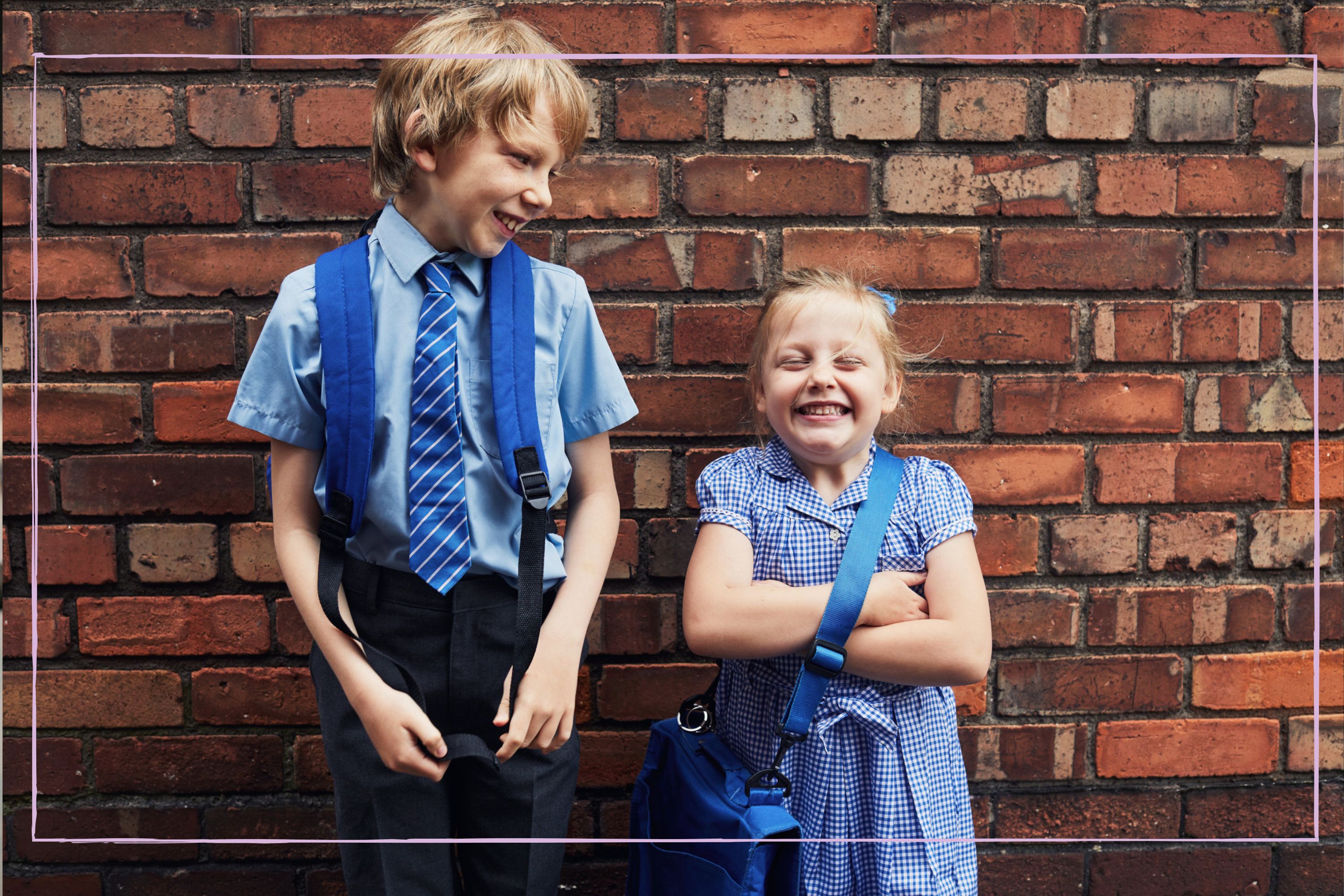 Back to school photo checklist - here's what parents need to think about first, from an expert
Back to school photo checklist - here's what parents need to think about first, from an expertBefore you post that adorable back to school photo online for your friends and family to see, a parenting expert wants you to think carefully about how much the picture reveals.
By Lucy Wigley Published
-
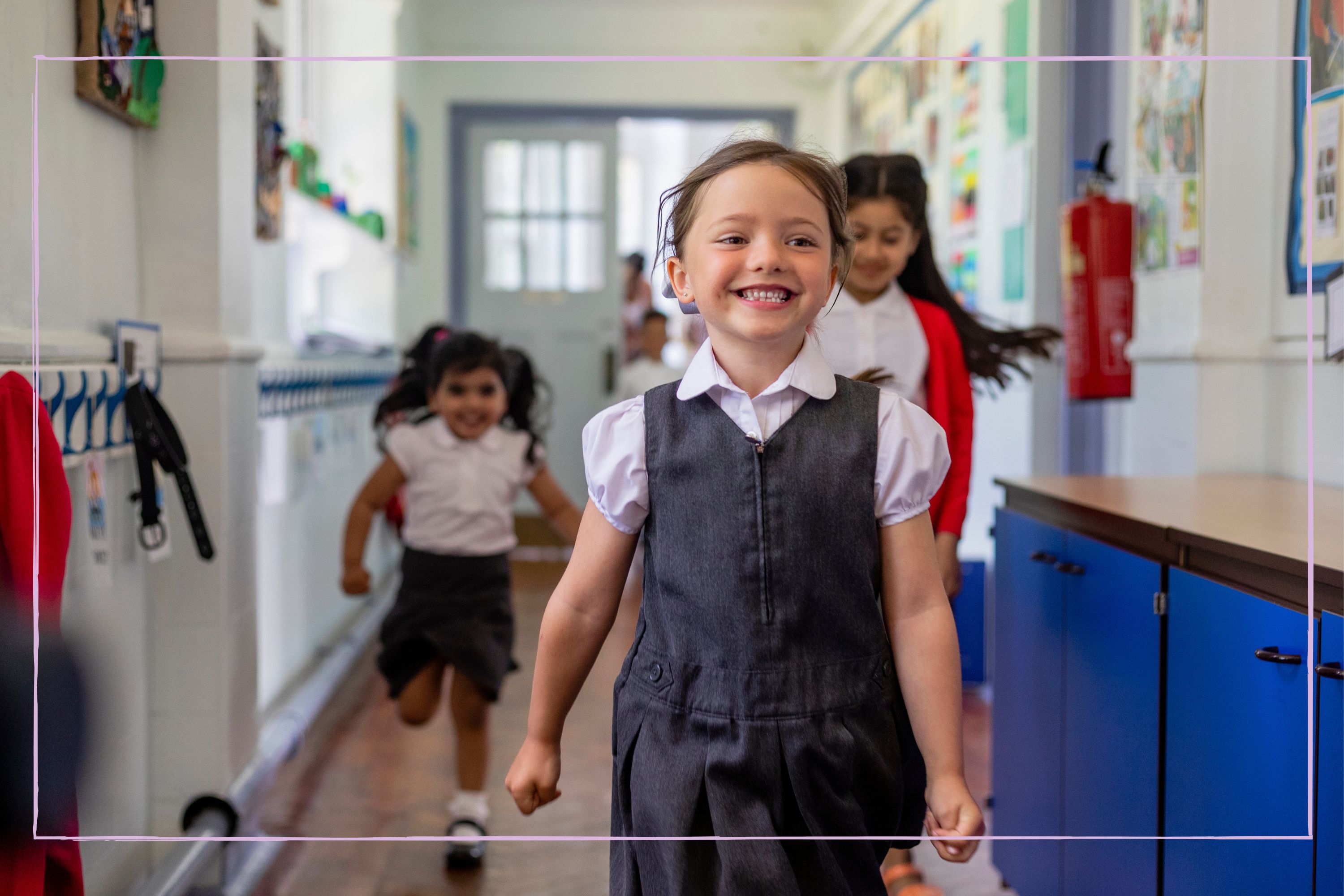 4 phrases to help kids settle on first day back at school, according to a child development expert
4 phrases to help kids settle on first day back at school, according to a child development expertIt's natural for kids to struggle with some 'separation anxiety' when returning to the classroom, and dealing with it is so much easier with expert insight
By Charlie Elizabeth Culverhouse Published
-
 Oasis reunite - the 15 facts your kids need to know about 90s band
Oasis reunite - the 15 facts your kids need to know about 90s bandEducate your kids on music's most infamous falling out and get them just as excited as you are for the Oasis reunion
By Charlie Elizabeth Culverhouse Published
-
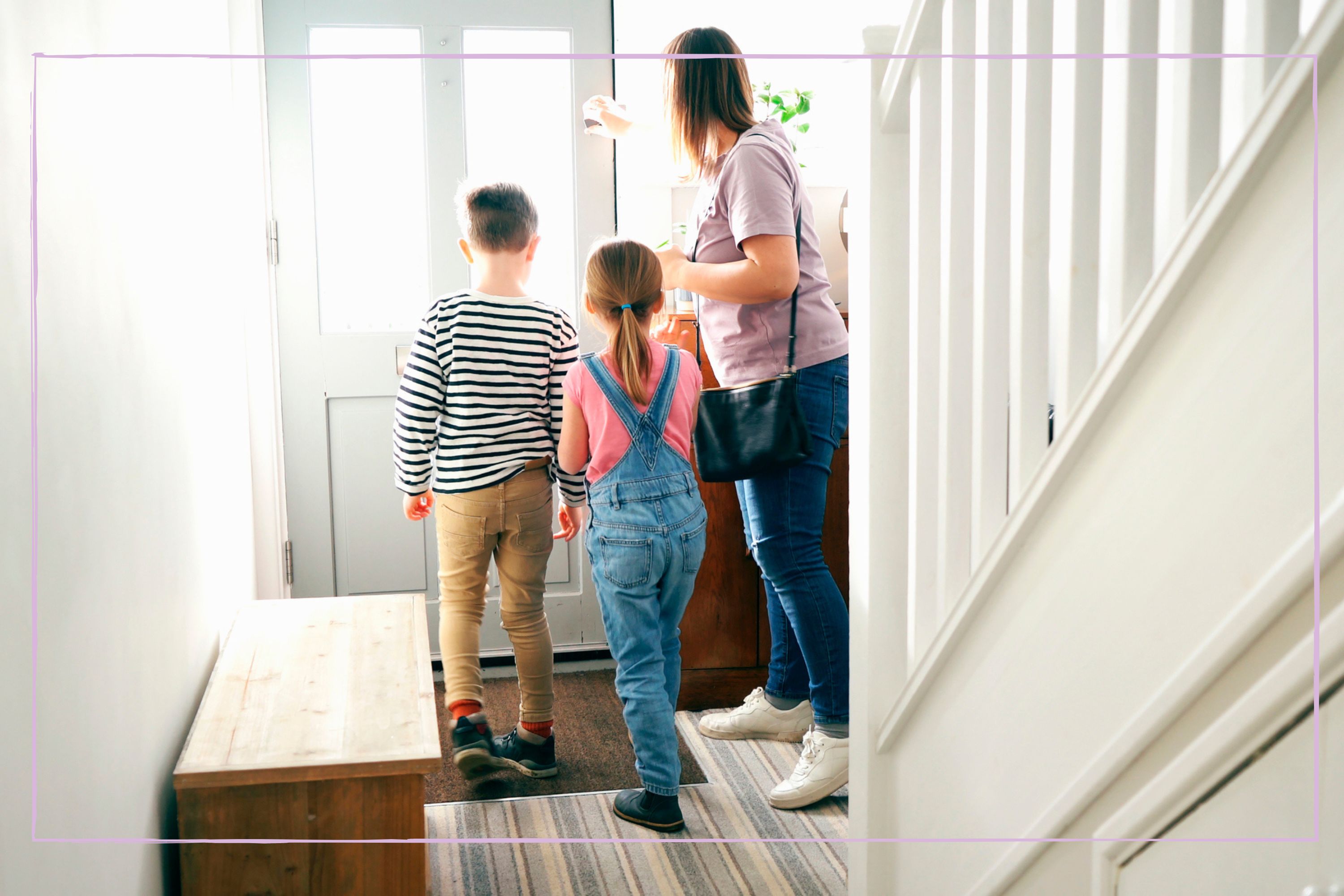 5 surprising ways rushing your kids out the door can be damaging, according to experts
5 surprising ways rushing your kids out the door can be damaging, according to expertsAre you always rushing your kids out the door? Life is a constantly hectic schedule and although you need to be places on time, it can actually be damaging to kids.
By Lucy Wigley Published
-
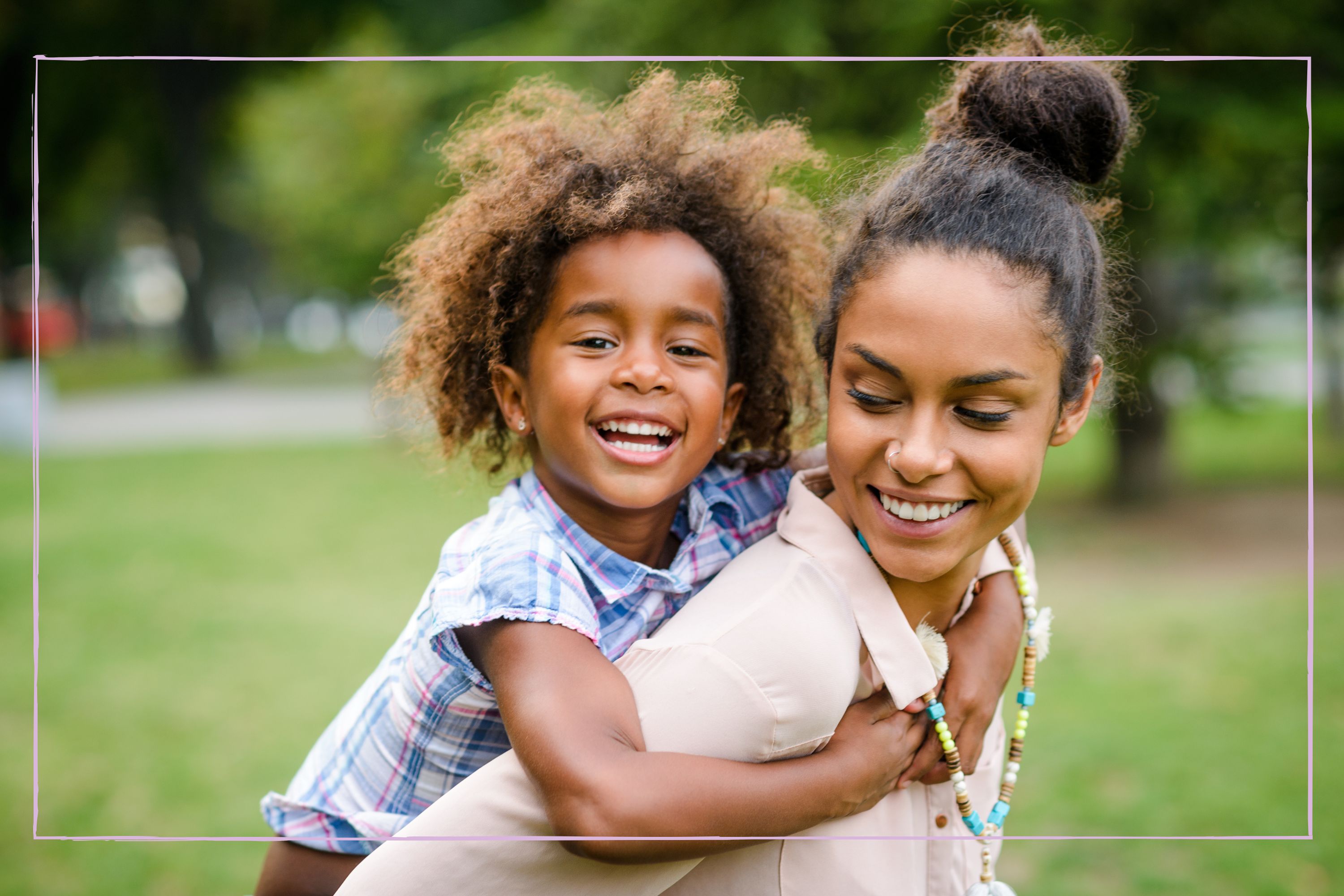 10 ways Millennial parents are ‘breaking the cycle’ - and teaching kids life lessons they were never taught
10 ways Millennial parents are ‘breaking the cycle’ - and teaching kids life lessons they were never taughtBeing a 'cycle-breaker' is vital for parents who want their kids to learn life lessons they were never taught
By Charlie Elizabeth Culverhouse Published
-
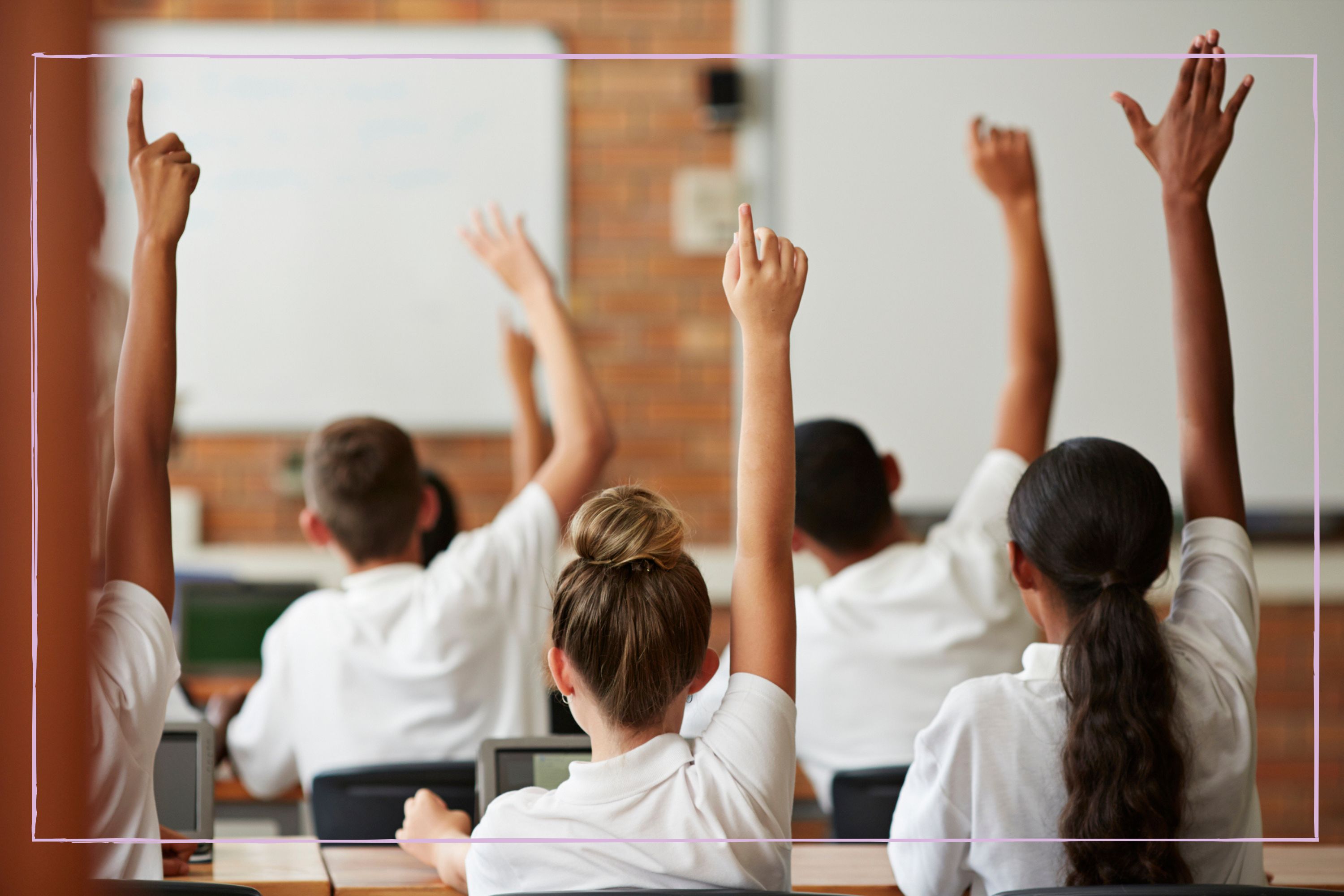 Plans to teach children how to spot ‘disinformation, fake news and putrid conspiracy theories’ in schools unveiled
Plans to teach children how to spot ‘disinformation, fake news and putrid conspiracy theories’ in schools unveiledIn a bid to tackle how children interpret what they see online and how they spot fake news, the government has announced how this will be handled in schools.
By Lucy Wigley Published